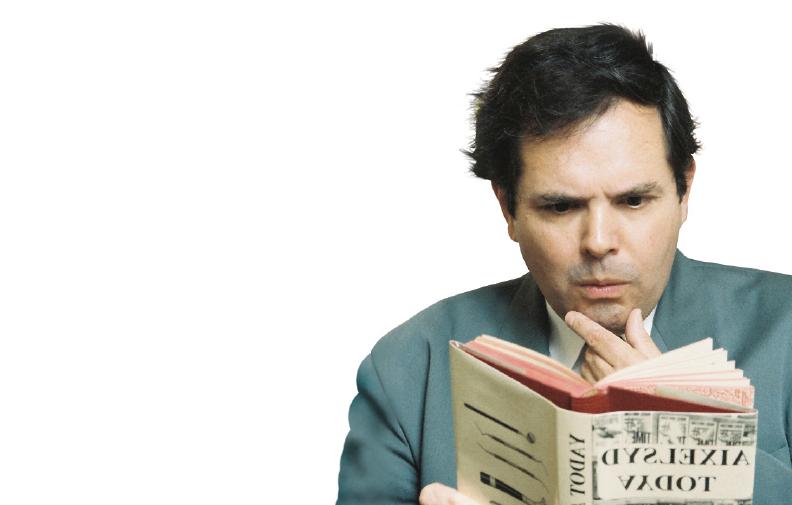Michael Gove, the Education Secretary, wants you to teach more facts. Speaking on BBC Radio 4’s Today programme on January 20, he announced a new review of what children are taught. Describing the current curriculum as ‘sub-standard’, he said he wanted to reduce ‘unnecessary prescription’ and ensure that the curriculum would be slimmed down so that it reflected the ‘essential knowledge’ that children should learn.
‘I’m not going to be coming up with any prescriptive lists,’ said Gove, ‘ I just think there should be facts.’ Various commentators subsequently drew parallels with Mr Gradgrind, Dickens’s simplistic schoolmaster in Hard Times, published in 1854. ‘Now, what I want is Facts. Teach these boys and girls nothing but Facts. Facts alone are wanted in life. Plant nothing else and root out everything else.’
Facts, of course, are very useful. How can you formulate correct decisions without all the facts? How can you win a pub quiz without a wide range of facts at your fingertips? But facts alone do not constitute knowledge or understanding and the compulsive accumulation of facts may well be an indicator of some worrying psychological condition.
And what constitutes an important fact or even a true fact? We all know that William the Conqueror won the Battle of Hastings in 1066, but how many people know that his wife was only four feet two inches tall, according to the Guinness Book of Records? This is a solid pub quiz historical fact, except that other expert sources quote evidence from her incomplete skeleton suggesting that she may have been as tall as five feet. Facts are rarely as definite as we like to think.
Gove’s enthusiasm for facts echoes much popularist opinion that children coming out of school today know hardly anything useful. In the Daily Telegraph, he noted the absence in the history curriculum of figures such as Winston Churchill, Florence Nightingale and Horatio Nelson and the lack of a ‘connected narrative’ in the teaching of British history.
Only last week a mate of mine in the pub mentioned how appalled he was to discover that a school-age relative seemed unsure as to who was Prime Minister during World War II. Such breathtaking ignorance was clear proof of the abysmal standards of modern education. I asked him to remind me who was Prime Minister during the Boer War (Answer: Lord Salisbury – but of course you knew that.) ‘I don’t know,’ he replied. ‘What’s that got to do with anything?’ I explained that the Second World War was as distant in history from his young relative as was the Boer War to us when we were the same age. He was unconvinced, so I asked him who was Prime Minister during the First World War. He was a bit hazy on that as well. (Herbert Asquith, then David Lloyd George, just in case they come up in the next pub quiz.) Each of us knows what we mean by an important fact, but I suspect that a general agreement on Gove’s ‘essential knowledge’ might be a bit tricky.
Perhaps we’re on safer ground with geography. Mr Gove said that, ‘in the geography curriculum the only country we mention is the UK – we don’t mention a single other country, continent, river or city.’ Shocking! In my school geography class, back in 1959, I learned loads of useful facts, like the names of all the towns on the River Congo. Unfortunately, I hadn’t even left school before they had a revolution and changed them all. They even changed the name of the river.
Politicians themselves do not provide the best examples of using facts. One side’s ‘cuts’ are another side’s ‘efficiency savings’ and ‘fair’ is fast becoming a word with no meaning at all in a political context.
I don’t think Mr Gove could find a teacher anywhere who doesn’t teach facts on a daily basis, but to help him in his campaign to determine which facts constitute ‘essential knowledge’, I offer him this simple training exercise:
Consider these facts:
About 8 per cent of children attend private schools; over 40 per cent of Oxford and Cambridge students are from private schools.
Last year, 175 boys at Eton got three As at A Level; out of all the boys in the whole country receiving free school meals, 75 got three As at A Level.
Hundreds of bankers are about to receive huge bonuses for the past year; profits of banking have fallen over the past year.
Explain these facts to a Y9 class on a Friday afternoon. Illustrate your explanation with examples of ‘essential knowledge’ and a ‘connected narrative’.



